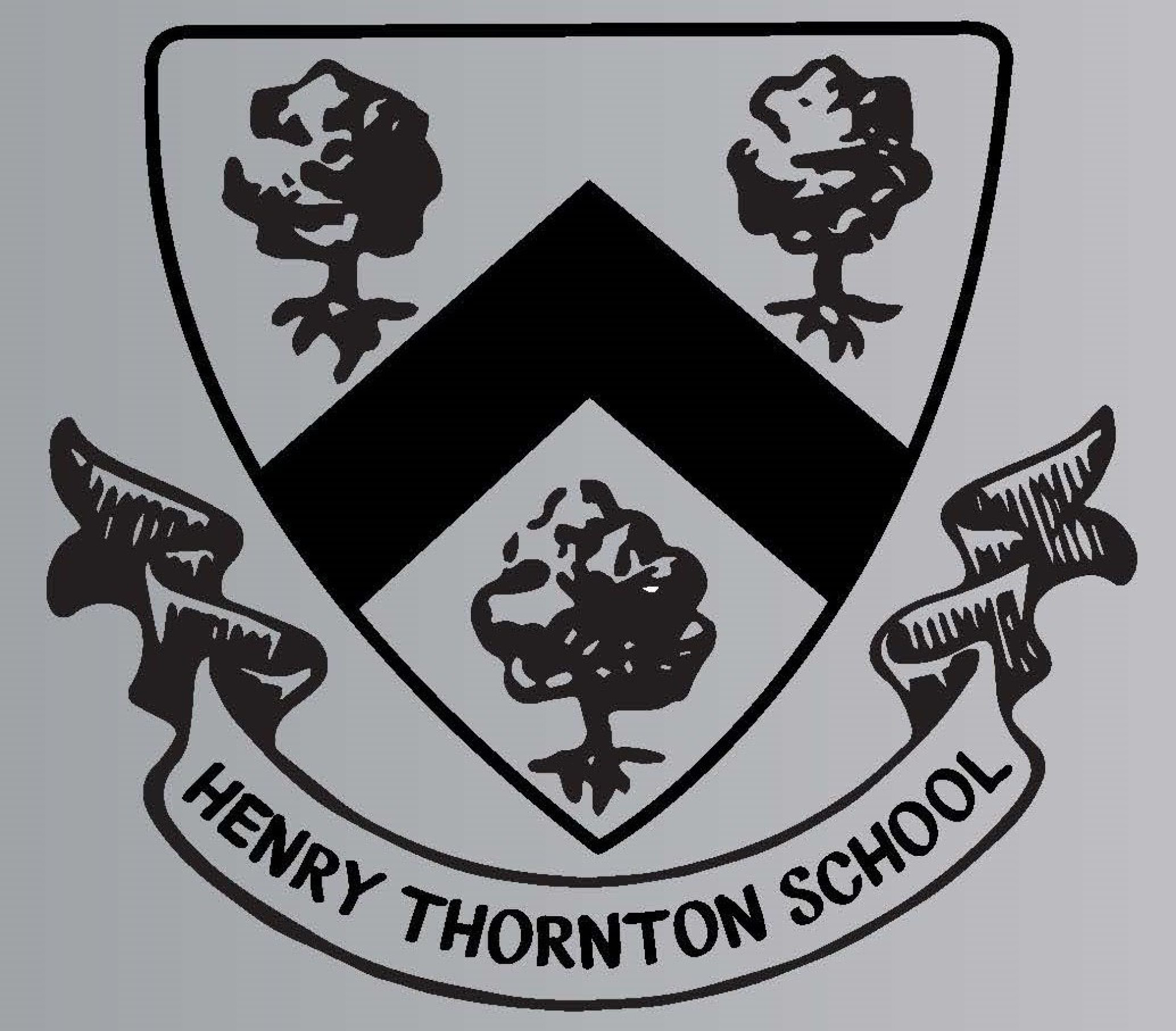
Old Thorntonians Association (CLAPHAM)
Henry Thornton School, Clapham, South London


Old Thorntonians Association (CLAPHAM)
Henry Thornton School, Clapham, South London

Henry Thornton (10 March 1760 - 16 January 1815)
The following article, written by a pupil, "W.B.E."[Evans], appeared in the Spring term 1950 issue of the school, magazine, The Thorntonian:
You may well ask why our School is called Henry Thornton? The choice fell upon Henry Thornton chiefly for two reasons: firstly, because he and his family were always closely connected with Clapham; and secondly, because no better name could have been adopted for our School.
He was a philanthropist and economist, a great Clapham figure, and a Governor of the Bank of England. He was the fourth son of John Thornton. The family was a middle-class family - the class which has built up and sustained England's greatness, for the father himself invested a great deal in trade, and was the first Treasurer of the Marine Society, and later a Director of the Russia Company, while Samuel, the eldest son, was a Director of the Bank of England.
Although his father had inherited a large fortune and invested it in trade, he appears to have been more interested in religious questions than in the education of his children, for Henry himself confessed that he started life with "next to no education", and without any political acquaintances.
He was educated locally, first with a Mr Davis on Wandsworth Common, with whom he acquired more than the usual knowledge of Latin and Greek; but from a Mr Roberts of Point Pleasant, Wandsworth, who undertook to teach him not only Greek and Latin but "French, rhetoric, drawing, arithmetic, reading, writing, speaking, geography, bowling, walking, fencing, besides Hebrew and mathematics," he learned nothing except "habits of idleness." But he was very successful in business, for after being a partner in his father's house, he joined the bank of Doune, Free and Thornton, and he was a member of this firm until his death.
His views upon the questions of his day reveal a broad-minded and incorruptible mind - incorruptibleness being a rare virtue in those days, for in 1792 he was invited to stand for Hull in a bye-election, but withdrew on finding that each voter expected a present of two guineas. But he was later elected for Southwark, and although he always refused the guinea which was expected there for voters, he held the seat until the end of his life.
He sympathised with the early stages of the French Revolution, and although he considered war to be necessary in 1793, he supported Wilberforce in a motion to facilitate negotiations for peace. He voted in favour of Grey's motion for Parliamentary Reform in 1797; and, like Wilberforce, separated from most of his Protestant friends in supporting Roman Catholic Emancipation. Thus, on many of the subjects of his day, his opinions were far in advance of his time.
In the House of Commons, he was not a great speaker but was well-known as a high authority on all matters of finance. He was a member of the committee on the Irish Exchange and Currency, and also of the famous Bullion Committee. His reputation as a financier was further enhanced by his "Enquiry into the Nature and Effects of the Paper Credit of Great Britain," a book of which Mill said in his "Political Economy" that "it is still the clearest exposition known to him in English of the subject with which it deals."
Henry Thornton is perhaps better known to us as a close friend of Wilberforce and a prominent member of the Clapham Sect. His house at Battersea Rise became the meeting-place of the informal councils which gathered around Wilberforce. He supported Wilberforce's anti-slave trade agitation in Parliament and took a leading part in the foundation of the Colony at Sierra Leone which was intended to provide a centre of civilisation for the African races. For this end, he carried through Parliament a Bill for the formation of a Sierra Leone Company. But the company was not a success, and Thornton himself lost a great deal of money, but he held that he was "on the whole a gainer," for he had encouraged an interest in the African races
Thus passed away Henry Thornton, a man distinguished both for his political and social work, one of the few incorruptible men of a great age of corruption, and an ardent reformer. Intellectually he was distinguished for sincerity and calmness of judgment: in commercial matters, he was conspicuous for a high standard of integrity. Surely such a man could have had no better memorial than a School! and we, as members of that School, should endeavour to render more illustrious the honoured name of Henry Thornton.
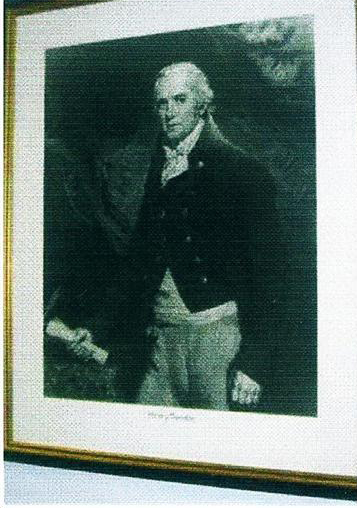
Portrait of Henry Thornton displayed at Lambeth College, Clapham
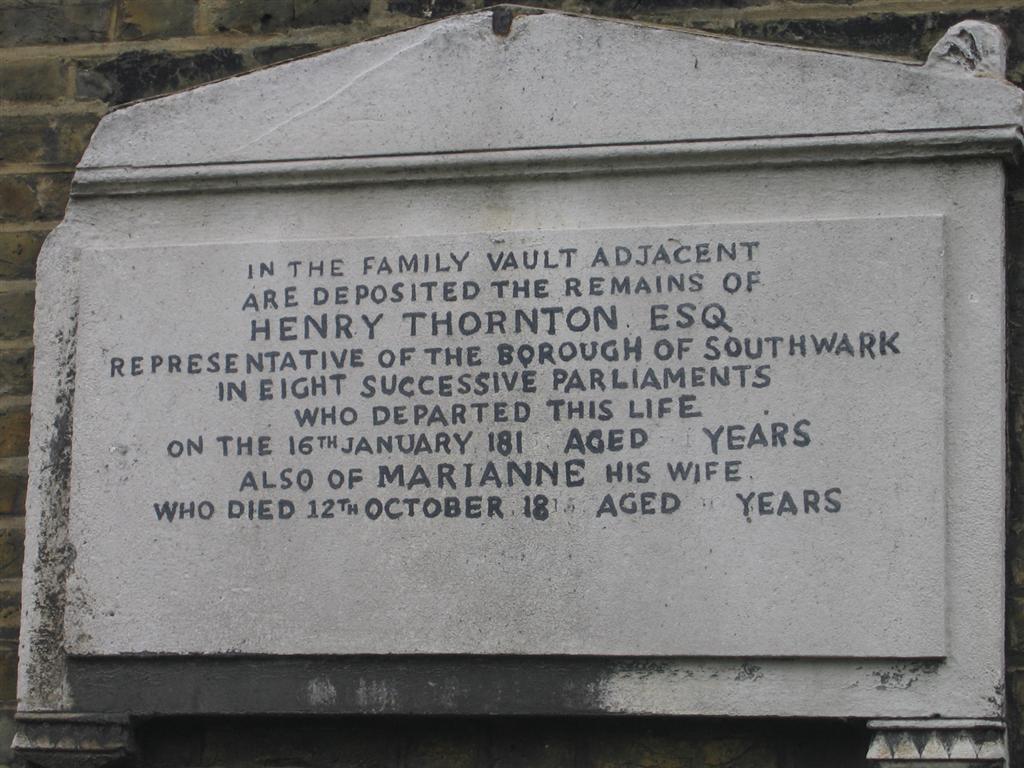
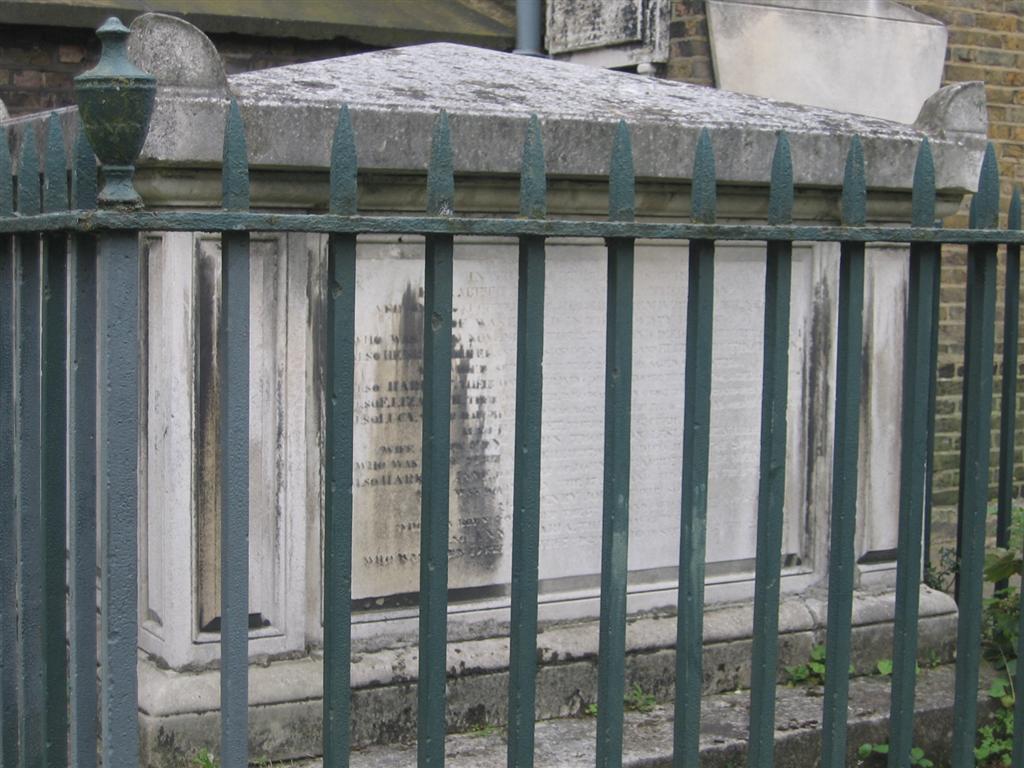
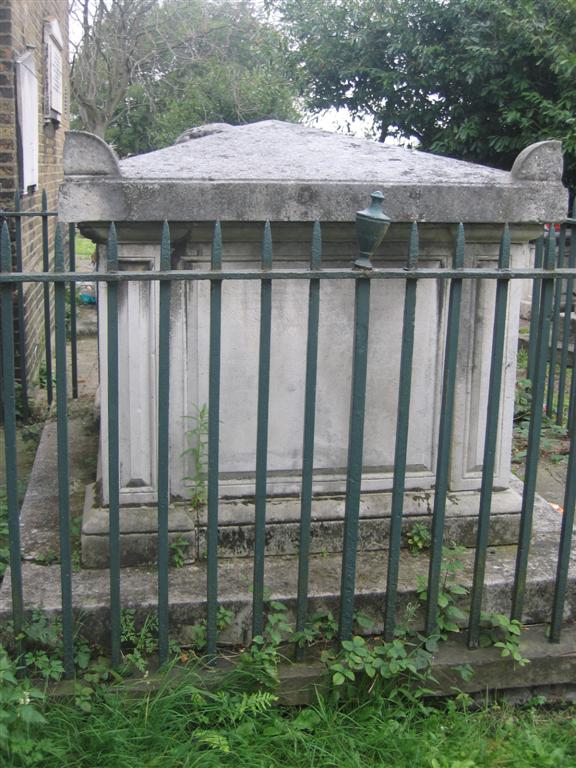
The photographs above show the commemorative plaque and Thornton family vault at St Paul's Church, Rectory Grove, Clapham. The missing/indistinct text on the plaque is: (third line from end) "1815" and "54"; (last line) "1815" and "50". Marianne Sykes, the daughter of Joseph Sykes, a merchant from Hull, married Henry in 1796.
*Nick Bird, the third great-grandson of Henry Thornton, points out that Henry was not, in fact, a Governor of the Bank of England, although his elder brother Samuel (1754-1838) did hold this office from 1799 until 1801; he was also a Director of the Bank.
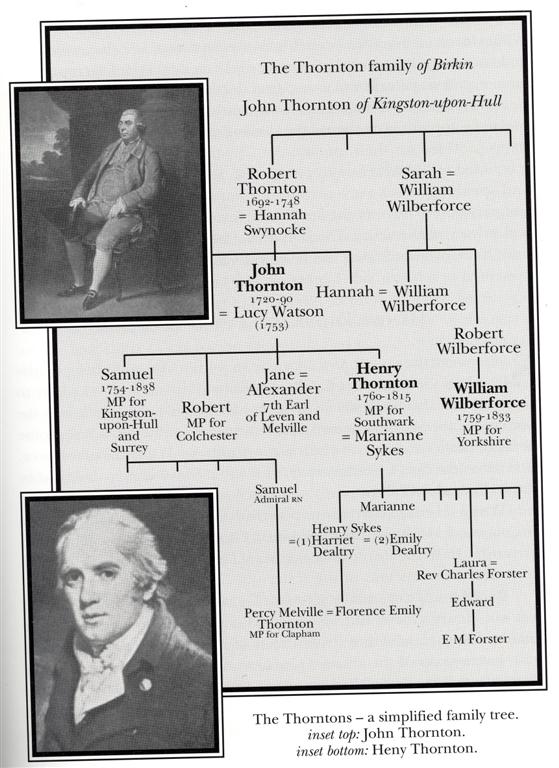
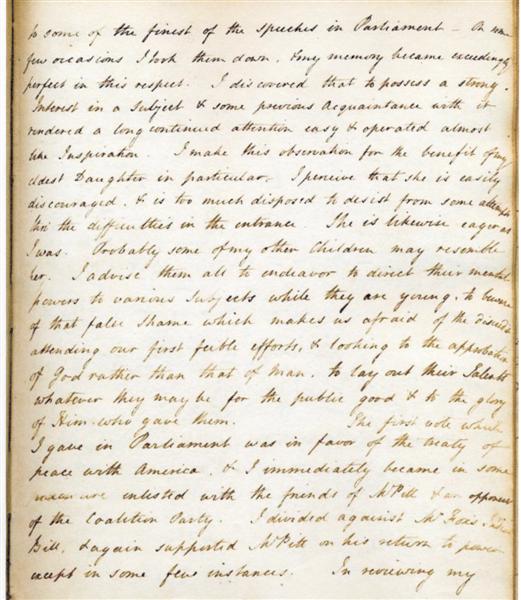
An abbreviated version of the Thornton family tree is reproduced above, from the late Margaret Bryant's book "The Clapham Sect" (2004),by kind permission of the publishers, The Clapham Society.
An extract from Henry Thornton's "Recollections" (with transcript) is from Nick Bird, his third great-grandson.
TRANSCRIPT:
[Start] …to some of the finest of the speeches in Parliament. On some few occasions I took them down, & my memory became exceedingly perfect in this respect. I discovered that to possess a strong interest in a subject & some previous acquaintance with it rendered a long continued attention easy & operated almost like Inspiration. I make this observation for the benefit of my eldest daughter in particular. I perceive that she is easily discouraged & is too much disposed to desist from some attempts thro' the difficulties in the entrance. She is likewise eager as I was. Probably some of my other Children may resemble her. I advise them all to endeavor to direct their mental powers to various Subjects while they are young, to beware of that false Shame which makes us afraid of the discredit attending our first feeble efforts, & looking to the approbation of God rather than that of Man, to lay out their Talents whatever they may be for the public good & to the glory of Him who gave them.
The first vote which I gave in Parliament was in favor of the treaty of peace with America, & I immediately became in some measure enlisted with the friends of Mr Pitt & an opponent of the Coalition Party. I divided against Mr Fox's India Bill & again supported Mr Pitt on his return to power except in some few instances. In reviewing my… [End]